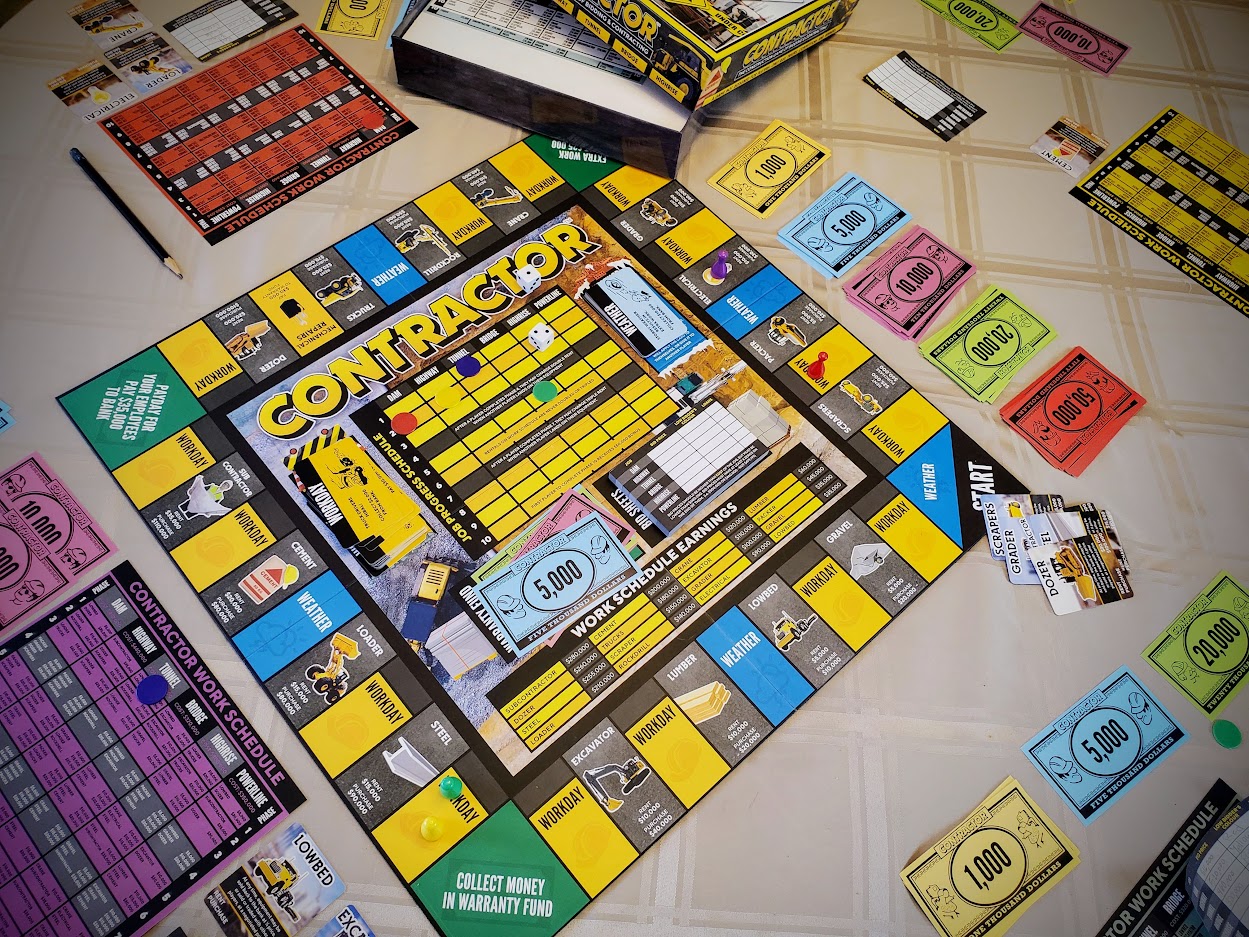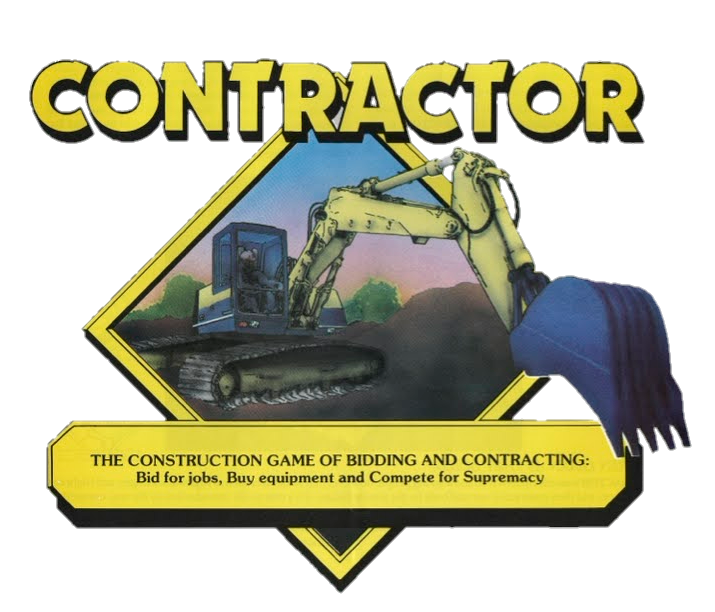

Contractor is a dynamic, roll-and-move board game where players step into the shoes of construction contractors, aiming to amass wealth through strategic bidding, equipment management, and job completion. Much like Monopoly, Contractor is centered on economic strategy, but instead of highlighting real estate development, it focuses on the specifics of the construction industry, providing players with a more focused and realistic simulation of being a contractor.
The main objective in Contractor is to accumulate the most money by the end of the game. This is achieved through successful bidding on construction jobs, efficient management of resources, and completing phases of various construction projects.
Banker Role: One player is designated as the Banker to manage finances and the bid sheet. Initial Resources: Each player starts with a set amount of money and equipment cards. Board and Tokens: Players receive a work schedule and a token. The game board is set with equipment spaces, workday spaces, and weather spaces.
Drawing Equipment Cards: Players draw equipment cards to determine their initial resources. Equipment is essential for completing various phases of construction jobs.
Bidding on Jobs: Players bid on jobs like building dams, bridges, high-rises, and more. The player with the lowest bid wins the job and records it on their work schedule. Bids must be strategic, balancing between low enough to win and high enough to cover costs.
Buying Equipment: Players purchase the necessary equipment for their awarded jobs. Equipment can also be used to generate rental income from other players.
Movement and Working: Players move their tokens around the board based on dice rolls. Landing on Workday spaces allows players to work on their awarded jobs. Each job is divided into ten phases, with payments made at the completion of each phase. Players pay rent for equipment used during their job phases, which can be owned by other players or the bank.
The game ends when a player completes all ten phases of their job(s) and collects a bonus from the bank. All players then tally their money, considering completed phases, equipment sold, and loans repaid. The player with the highest total wealth wins.
Contractor shares core aspects and mechanics of Monopoly, such as economic strategy, property management, and the familiar roll-and-move mechanics. However, Contractor differentiates itself with its unique job bidding process, phase-based job completion, and continuous player engagement, offering a more immersive and educational experience that mirrors real-world construction challenges. Let’s look at similarities, then a few differences:
Economic Strategy: Both games require players to manage finances wisely, make strategic investments, and aim to earn money more efficiently than competitors. Property Management: In Monopoly, players acquire rental properties, whereas in Contractor, players acquire and manage construction equipment that they can rent to each other. Rent Collection: Just as players collect rent in Monopoly, Contractor players earn rent when other players use their equipment. Roll-and-Move Mechanics: In both games, players roll two dice and move around the edge of a square board. The functionality of many of Contractor’s spaces may seem reminiscent of similar Monopoly spaces.
Job Bidding Mechanic: Unlike Monopoly, where properties are acquired by landing on them, Contractor involves a pre-game job bidding process that introduces a strategic element of planning and risk assessment. Phase-Based Job Completion: Contractor's job completion process, broken into phases, simulates the step-by-step progression of real-life construction projects, whereas Monopoly involves straightforward property development. Player Engagement Between Turns: Machinery rentals required for job phases provides players with much more engagement in the game than is typical in Monopoly. Rather than rental charges going from one player to another once during a player’s turn, a player may have to rent from multiple sources in one turn to progress. Everyone Plays Until The End: Unlike in Monopoly, where the aim is to bankrupt other players (leaving them as spectators for hours, potentially), in Contractor, all players play actively until the end of the game.
Contractor goes beyond entertainment by teaching players the basic economics of the construction industry. It emphasizes strategic planning, resource management, and the importance of cost estimation and bidding, mirroring real-life contractor challenges. With many choices presented to the player on their turn, and a valuable amount of freedom provided to work or not, players learn the pros and cons of making choosing various options.
Contractor offers a unique twist on the classic board game formula by immersing players in the world of construction. Its blend of economic strategy, competitive bidding, and realistic job management provides an engaging and educational experience. Whether you're a fan of Monopoly looking for a new challenge or someone interested in the intricacies of the construction industry, Contractor is a game that promises both fun and learning.
For more detailed rules and gameplay instructions, you can refer to the official instruction manual.
